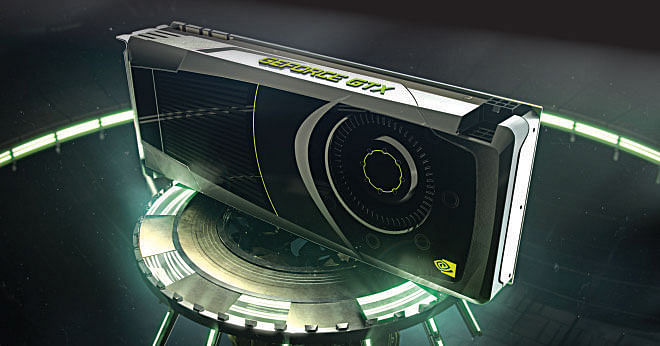Knowing your Graphics Card: Facts
Knowing your Graphics Card: Facts

A graphics card is undoubtedly the most crucial upgrade for your gaming PC. Sad thing is, the average noob has to tackle a plague of myths and misconceptions when he (or she) decides to make his first purchase. We'll tell you what to buy at what budget in another issue, but for now let's get you introduced to the basic facts of a modern Graphics Processing Unit (GPU).
Graphics Memory (VRAM):
Yes, it does matter but the real question is, to what extent? Every graphics card is equipped with memory which helps it to store the data for access onscreen. Note that a bigger memory doesn't necessarily mean faster output. This is a HUGE misconception amongst newbies. They somehow think any 2GB graphics card is going to last them a lifetime, while in fact the amount of video memory needed to run a particular application is directly proportional to the resolution the application is being run at. Most games nowadays barely use 1GB when maxed out. There are some exceptions yes, but if if you are on a budget then you'll do fine with 1GB of video memory.
Mantle:
AMD's current claim to fame. Mantle is a low level Graphics API that can only be achieved via AMD Graphics Core Architecture (7xxx series and above). AMD currently holds the console market in their hands and as stated by AMD 'Mantle is designed to utilise the optimisation work done for gamers on the next generation console'. To be honest, this shows great promise. If this indeed gets pulled off then the line between console gaming and PC gaming will most definitely blur. Developers won't need to optimise for specific platforms. One shouldn't opt for an AMD card solely for Mantle though. Despite the promises, Mantle is yet to achieve anything of significance. We'll have to wait and find out.
G Sync:
Nvidia's proprietary Vertical Sync tech. It allows for the monitor refresh rate to automatically sync in accordance with FPS (frames per second); hence removing screen tearing and providing a smoother gameplay experience. For example, most monitors are 60hz which is why 60 FPS is considered the smoothest possible spot. If the refresh rate of the monitor was to sync with the FPS, then be it 30 or 35, you WILL experience lag-free gameplay. The catch to this is, you need a G Sync enabled monitor to acquire this feature. Not necessarily cheap; I would rather invest in a better graphics card.
PhysX:
PhysX is NVidia's most effective marketing gimmick to date. Truth be told, the exclusive eye-candy NVidia likes to brag about can easily be rendered by any AMD graphics card. The native coding on PhysX features prevent AMD from even touching it. There are very few PhysX supported games, and the games that do support it fail to impress. What is truly sad though is that a majority of Bangladeshis buy NVidia GPUs solely because they think PhysX is used in all games. Contrary to popular belief, it's not an important feature. PhysX is not a game changer. Period.
Eyefinity:
This is a multi-display technology that enables a GPU to produce six independent displays simultaneously. If you are into surround gaming then Eyefinity is an absolute must. Surround windows can be achieved through almost any AMD card, but surround gaming requires a monster GPU (or two). Two 720p monitors combined reach a resolution that is way beyond even 1080p hence requiring immense raw power. I would prefer buying a bigger monitor, but a surround display system gives you exclusive bragging rights. Few would want to skimp on that.
Technical Specifications: Texel Rate, Pixel Rate, Core clock, Memory clock are the numbers that prime the GPU. People think that a card's gaming performance is proportional to the amount of Texel Rate, Pixel Rate etc etc of that particular card. This is not true at all. Gamers shouldn't concern themselves with technical specs unless they want to overclock their GPUs; all they need to care about is the generation and gaming performance of the unit. So my advice would be, avoid sites like hwcompare.com/gpuboss.com. Refer to anandtech.com for game benchmarks.